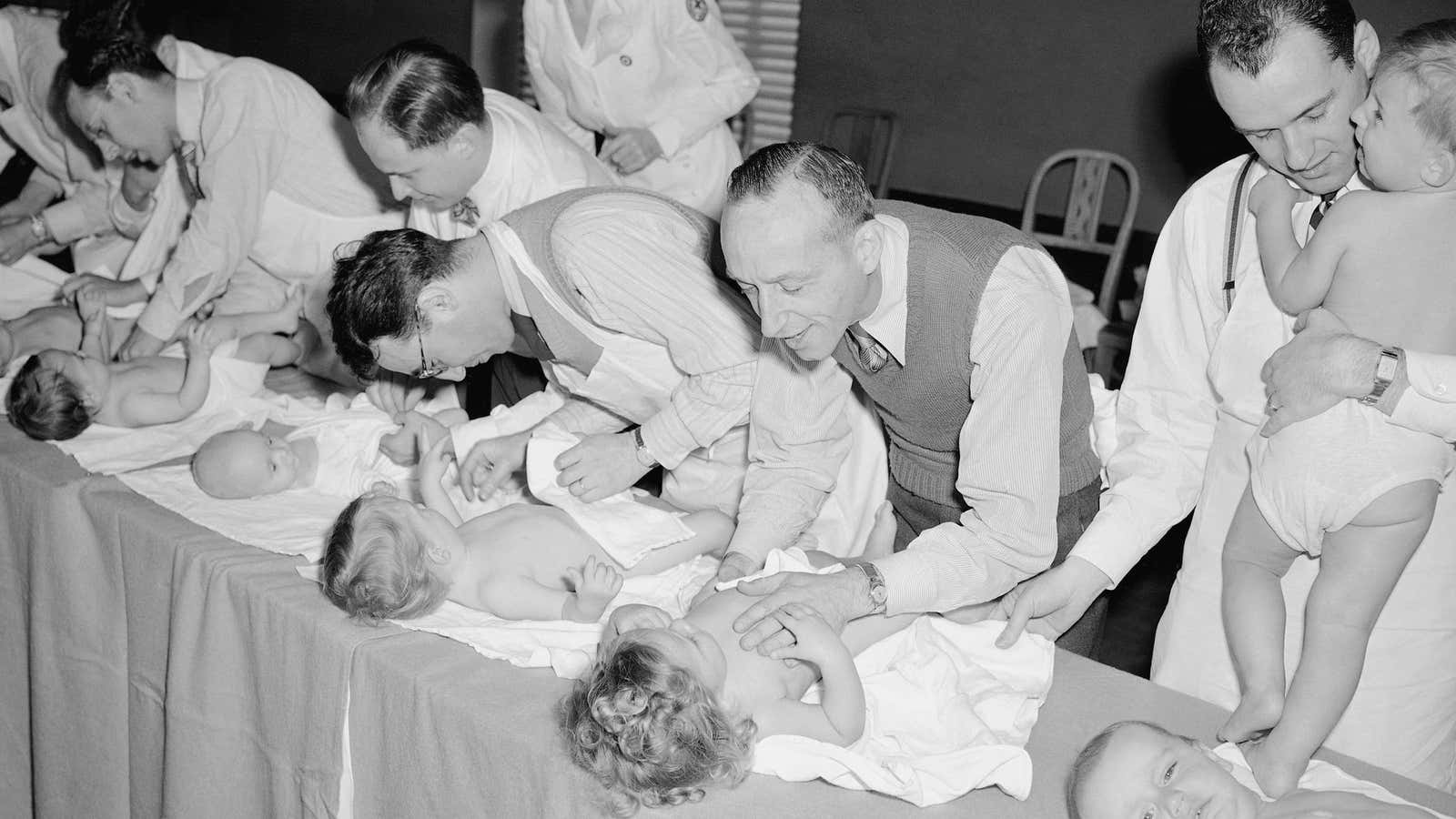I already know what the trolls are going to say. They’ll call me a snowflake, and the problem with America, for praising a new Gillette razor ad that they find “insulting” and “virtue-signaling.” They’ll tell me to “let men be damn men.” And they’ll say worse. So if you’re hate-reading this story right now, I’d suggest that you write a note to a friend, or hug your kid, or go for a walk instead.
Now that’s out of the way: I love this Gillette ad that has the internet all riled up. Yes, it’s a piece of advertising. Yes, it relies on the slightly stale superhero trope of “good men” rescuing innocent victims. Yes, it’s designed to make me, a mom who does the grocery shopping and household budgeting, like this brand of razor. You know what? It worked.
Here’s why: It clearly argues that the culture of masculinity needs to be changed, and it places the responsibility for doing that where it belongs, on men.
In the ad, Gillette addresses its own complicity in this culture, playing off its slogan, “The best a man can get.” And the ad visually references the decades of advertising that relied on objectifying women and reinforcing rigid gender roles to sell razors, a cigarettes, beer, TV dinners, and pantyhose.
Then, and this is huge, the ad offers a vision for what a better model of masculinity might look like. Yes, there is a degree to which men in the ad swoop in save the day—interrupting a street harasser, breaking up a fight. It’s harder, after all, to visually dramatize something like organizing the men at your job to ask for the same parental leave as women. Or calmly saying, “I want to hear the rest of her thought,” when a woman is interrupted in a team meeting.
As my former colleague Thomas Page McBee wrote:
[M]en don’t talk about being a man. In fact, no one does.
That’s why we focus on Harvey Weinstein, but not how Harvey Weinstein (or Bill Cosby, or Jerry Sandusky, or Roger Ailes, or Donald Trump) became that way. It’s easier if there are “good” men, even if they’re harder and harder to find, than it is to ask the more meaningful question, about all of us: What is going on here?
The Gillette ad engages with this question. It talks about the culture that made men this way. It references explicitly the “boys will be boys,” trope: the idea that boys are inherently aggressive; that they should learn to fend for themselves and use violence as a tool; that empathy, affection, and vulnerability are somehow emasculating.
Some men, predictably, are outraged, and are vowing (rather ridiculously) to boycott Gillette. The ad, which has nearly 5 million views on YouTube, has so far received more that 380,000 thumbs down votes, compared to 104,000 thumbs up. Beard proponents complain that Gillette is somehow making beards symbols of toxic masculinity. (Please relax a moment. Gillette is a razor company. Of course a clean shaven face is its choice of visual metaphor.)
And Twitter’s most reliable trolls are apoplectic. The gall of a razor company setting forth some manufactured idea about how men should act! (Never mind that brands, including Gillette, have been selling us manufactured ideas about masculinity since the beginning of advertising, as the ad points out. Masculinity in general, and toxic masculinity especially, was carefully constructed, one leer at a time.)
“We expected debate,” Pankaj Bhalla, Gillette’s North America brand director, told CNN. “Actually a discussion is necessary. If we don’t discuss and don’t talk about it, I don’t think real change will happen.”
Recently Hannah Gadsby, the Australian comic who emerged as one of last year’s most brilliant voices on gender and violence, spoke at length about what happens when “good men” self identify as such, and take it upon themselves to draw a line between their actions and those of “bad men.” “My issue is that when good men talk about bad men,” she said. “The line in the sand that is inevitably drawn whenever a good man talks about bad men: ‘I am a good man. Here is the line. There are all the bad men.'”
But by invoking the “Best a man can get” slogan, Gillette upends that problematic formula. In the ad, as in life, men are not defined by their own conception of “good” or “bad” masculinity, but over and over again by their daily decisions. They’re not good for simply not harassing women, or by not being bullies. They’re accepting the responsibility of humans in a shared society to be active defenders of empathy and decency.
As the mother of a boy, this is something I often think about. And this is an advertisement designed to be precisely what I want to see, I know. But that’s the thing. As a culture we are hungry—starving—for more images of men taking responsibility. As I said to one of several female friends who sent me this ad, it’s strange how powerful it is to see men depicted in a way that emphasizes his humanity, rather than his dominance.
Men (bearded or not): Watch this ad. Think about it. If you’ve patted yourself on the back for not being a harasser or a bully, that’s great news. But have you also actively grappled with what a masculinity that embraces empathy, vulnerability, and the full experience of humanity looks like? Because yes, this is just an ad. But it’s as good a starting place as any.
